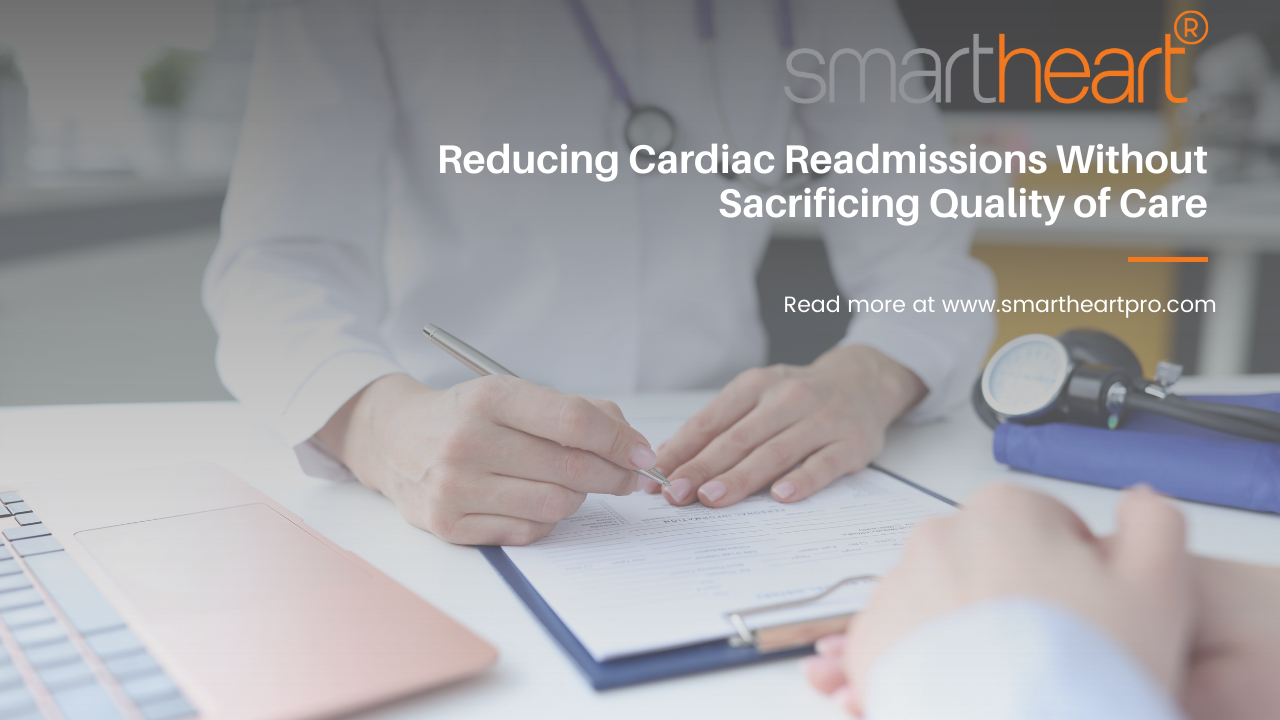The True Cost of Cardiac Readmissions
Hospital readmissions are a leading concern in healthcare. Increased readmission rates implies a lower quality of care in many instances and reflects poorly on a healthcare facility when the readmission is not planned or expected. In addition to the implications on healthcare quality, readmissions place a financial burden on hospitals.
Heart failure and related cardiac conditions are some of the biggest causes of readmissions. According to the AHRQ, “Heart failure costs are currently estimated at $30.7 billion. If no improvements are made to current treatment outcomes, it is expected to grow to $69.8 billion by the year 2030.”
While hospitals may not be able to affect what happens outside of the building, readmissions play a large part in the overall costs of cardiac care. In 2018 alone, there were approximately 3.8 million 30-day all-cause adult hospital readmissions. The largest cause was Septicemia at 314,600, but the second largest was heart failure at 233,100. The next largest cause accounted for only 122,400 and encompassed Diabetes complications.
Current Reduction Efforts Are Not Enough
Despite recent efforts by the government and healthcare organizations to reduce readmissions, 30-day readmission rates for heart failure have actually increased. Some even argue that the financial incentive model fails because it cannot accurately define the nature of the problem. It is argued that “inappropriate hospitalizations” or “readmissions” sometimes occur due to the convenience of care for the provider and patient, not because of a low quality of care.
The largest issue facing cardiac patients in particular is availability of care. If a cardiac patient feels there is a problem, the first step is to call the appropriate provider. Typically, the patient will be directed to come back to the hospital or healthcare facility in order to be readmitted and checked for problems with a 12-lead ECG (EKG). The 12-lead ECG is one of the best tools available to a physician for reviewing the status of a patient’s heart. An ECG is used to:
- Check the heart’s electrical activity.
- Find the cause of unexplained chest pain, which could be caused by a heart attack, inflammation of the sac surrounding the heart (pericarditis), or angina.
- Find the cause of symptoms of heart disease, such as shortness of breath, dizziness, fainting, or rapid, irregular heartbeats (palpitations).
- Find out if the walls of the heart chambers are too thick (hypertrophied).
- Check how well medicines are working and whether they are causing side effects that affect the heart.
- Check how well mechanical devices that are implanted in the heart, such as pacemakers, are working to control a normal heartbeat.
- Check the health of the heart when other diseases or conditions are present, such as high blood pressure, high cholesterol, cigarette smoking, diabetes, or a family history of early heart disease.
In cases of cardiac readmissions, it could be argued that while a patient may be treated well in an outpatient setting, a provider must bring that patient back into the hospital to provide the best quality of care through the use of a 12-lead ECG. This technology is not often available outside of a hospital setting, which is difficult to argue that the patient might be better off having never been readmitted. A 12-lead ECG might catch something that other monitoring methods have missed.
Providers Can Reduce Cardiac Readmissions Without Sacrificing Quality of Care
The solution comes in the form of a portable 12-lead ECG like SmartHeart®. Using this revolutionary technology, providers can now prescribe and send patients home with a mobile 12-lead ECG that links with any tablet or smartphone through Bluetooth and will instantly send results back to the appropriate provider.
SmartHeart® allows a patient, provider, nurse, or anyone else to quickly set up and perform a 12-lead ECG from any location, at any time. Using the self-guided app, and with little preparation compared to a standard ECG, anyone can perform a 12-lead ECG is as little as 30 seconds. Once the ECG is performed, the SmartHeart® app will instantly send the full results to the patient’s provider for review and interpretation.
SmartHeart® solves the problem of cardiac readmissions for hospitals and healthcare providers. Using this fully wireless 12-lead ECG technology, providers can continue to give cardiac patients the highest quality of care without being forced to advise a readmission.
To learn more about the capabilities of SmartHeart®, contact us today for a full demo of the leading portable 12-lead ECG technology on the market.

